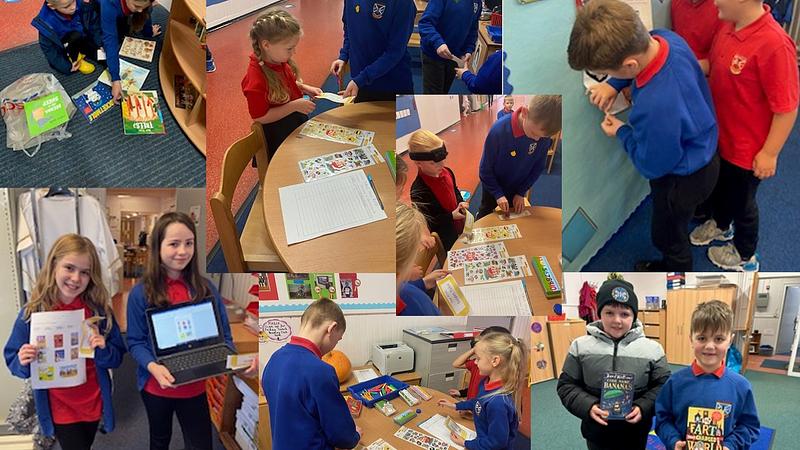Rewarding progress and recognising personal achievement at Allanton Primary School
Read our community success story for ideas on how to reward progress and recognise personal achievement on your Reading Schools journey

We have loved watching Allanton Primary School work through their Core and Silver accreditations. Throughout their reading for pleasure journey, their use of rewarding progress and recognising personal achievement included individual, personal rewards as well as whole school rewards. They reflected and adjusted throughout ensuring that the rewards they presented were always meaningful.
To spark curiosity and enthusiasm across all the classes for our Reading Schools journey, we first used the attitude surveys to inform our plans then set some whole school competitions. For our reading record project, each child designed a name, logo and record card. The children then voted for their favourite designs and we rewarded the winning designer with a book of their choice.
Winning a golden ticket
As we knew we needed individual evidence of reading for pleasure, we agreed that all pupils would participate in READ (Read every day and dream) time at 10am each day. In this time, pupils would track their reading progress. P1–3 recorded whenever they finished four books; the older children recorded when they finished one book. We also introduced READ certificates and every class library had a reading review activity file that encouraged pupils to talk about the books they'd read either with their teacher, a friend, or in front of an audience at assembly.
In the senior classes, we had a golden tickets reward scheme. Whenever a pupil coloured a section of their record card, they would be awarded a golden ticket to redeem on Fridays at the golden ticket shop. The shop, filled with literacy-related prizes like stationery and bookmarks, was run by P6/7 pupils and was a great way to develop the young workforce, encourage roles of responsibility and improve communication skills.
Reflecting and adjusting
Soon we had gathered lots of evidence to support our core level application but felt we needed to pause and reflect, assessing the impact using the second pulse survey.
We found that, although the reading record was effective, there were some issues. Many of the older children were frustrated that they would need to read much longer books than their younger peers to gain a golden ticket. Meanwhile staff in the younger classes found managing the records a challenge as many children struggled to find books they could read independently.
In response, we adjusted the amount of READ time in senior classes, began rewarding the completion of chapters or sections of a book as well as the whole book and also gave class teachers the opportunity to award tickets for reading success.
The golden ticket shop proved a great success and the children loved visiting. But this caused its own set of concerns. We realised we would need more stock and the money to maintain it. Instead, we chose to buy a wider variety of rewards – some that would cost one ticket, like a pencil, and others that would need to be saved up for, like a journalist notepad for three tickets.
We also discovered that the 10am time slot for READ was becoming problematic. Some children felt that fifteen minutes wasn't long enough to “get into their books”. Some staff found that particular time was impacting their teaching time. Now, we have a flexible approach; READ time happens whenever the class and their teacher choose.
Classes have responded really well to READ time overall and now we've incorporated READ buddy partnerships, where the older pupils are encouraged to listen to the younger ones reading and vice versa. This allows them to improve reading confidence and gives the opportunity to form new friendships.
Rewarding progress throughout the year
On top of our READ time project, we encourage children to dress up as characters, share their unusual reading spaces, decorate their libraries and enter competitions promoted by Scottish Book Trust, World Book Day, and more.
As a school, we also won a World Book Day competition and used the prize bean bags and book tokens to create comfortable reading spaces in our library for everyone to enjoy. The children who volunteered to help with the renovation were rewarded with special librarian badges and continue to support staff with all Reading Schools responsibilities.

